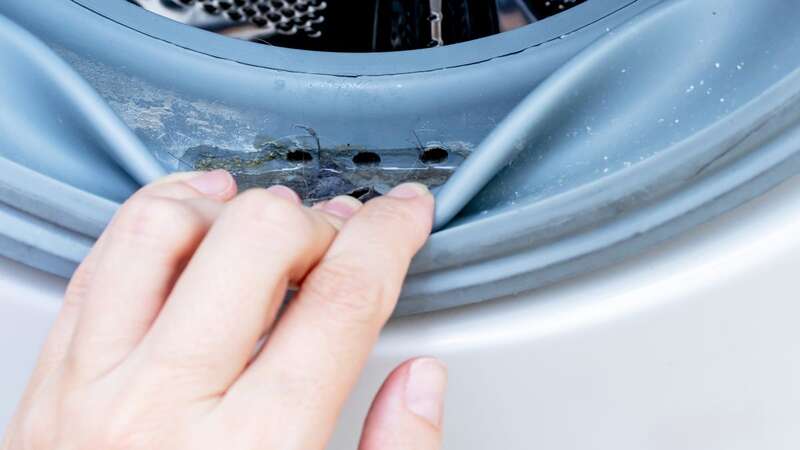
The rubber seal of your washing machine is particularly vulnerable to mould.
Black mould and mildew thrives in damp places, which is why your washing machine is a major culprit, particularly in the rubber seal and soap dispenser. If left untreated, the mould can release spores which can in turn cause worrying health problems, from allergies to respiratory problems.
Aside from this, it can also spread its spores into the fabric of your clothes, so it's important to treat it straight away.
It might be tempting to reach for the bleach or other harsh chemicals when you see black mould forming, but according to experts this method can damage certain surfaces and finishes. The pros argue that there's another ingredient that "kills mould more effectively than bleach," without the need for harsh chemicals.
Experts at Smol recommend using white vinegar to melt away washing machine mould - and as a bonus it can also get rid of limescale. They explained: "Bleach only kills mould spores on the surface of affected materials whereas vinegar can penetrate porous materials, killing mould at its root. It's an environmentally friendly and cheap way to keep your machine clean, killing bacteria and mould and preventing limescale."
 New Year cleaning guide with cheap hacks and tricks for a sparkling home
New Year cleaning guide with cheap hacks and tricks for a sparkling home
It's worth keeping in mind that although there have been warnings against using white vinegar to clean washing machines as it can damage appliances, experts explain that this is only if the ingredient, which is very high in acetic acid, is left neat on a surface for weeks on end. However, using diluted vinegar in water, or making a solution with it is not the same.
To banish the mould from the washing machine door seal, the experts recommend mixing equal parts warm water and clear vinegar, and apply using a cloth. Rub the mould and leave for 15 minutes before rinsing it off with a clean cloth.
You can also pour two cups of white vinegar into the detergent drawer before putting it on an empty wash on the hottest cycle, but do check the application instructions to see if this is advisable. The washing machine warranty might advise to only use a dedicated application cleaner, in which case you should follow the instructions.
You can pick up a 568ml bottle of distilled vinegar in Tesco for 30p or a 1l bottle of all-purpose white vinegar from Amazon for £5.99.
Read more similar news:
Comments:
comments powered by Disqus
































